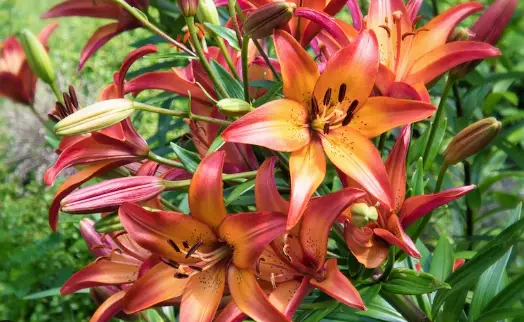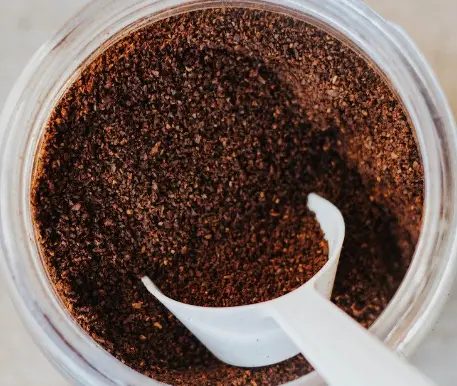As a plant owner, it’s natural to want to explore different methods to improve the health and growth of your plants. Some gardeners like to put on coffee grounds to enhance their plant’s growth.
So, Do daylilies like coffee grounds?
Yes, daylilies like coffee grounds because it adjust the nitrogen content and acidity of the soil. Coffee grounds can enhance soil fertility, attract beneficial earthworms, and serve as a natural mulch. But they can also be too acidic for some plants and potentially compact the soil. It is important to use coffee grounds in moderation and consider the soil conditions of daylilies.
There are many aspects to know about this issue. To know more about applying coffee grounds on daylilies keep reading this article.
Can I Use Coffee on Daylilies?
Coffee grounds can be beneficial for plants due to their high nitrogen content and acidity. However, the effect of coffee grounds on plants can vary depending on various factors, including the type of plant and the soil conditions.

Some gardeners use coffee on their daylilies, while others advise against it. it’s important to note that the acidity of coffee grounds is relatively mild and not as potent as some other soil amendments.
If you’re dealing with plants that require highly acidic soil, coffee grounds alone might not be sufficient to meet their needs.
What Can Happen if You Use Coffee Grounds on Daylillies?
Using coffee grounds on daylilies can have several effects. Here are some possible outcomes of using coffee grounds on daylilies:
- Enhances Soil: Coffee grounds can enhance the soil by adding organic matter, leading to improved soil structure and fertility.
- Boost the Growth: The nitrogen content in coffee grounds can boost the growth of daylilies and support their overall health.
- Attract Earthworms: Coffee grounds can attract earthworms, which aid in soil aeration and drainage improvement.
- Too Acidic: Coffee grounds can be too acidic for some plants, and daylilies might not tolerate the acidity well.
- Compacted Soil: The use of coffee grounds may cause the soil to become compacted, hindering the flow of water and air to the plant’s roots.
It is important to note that the benefits of using coffee grounds on daylilies may vary depending on the soil conditions in your garden.
How Can You Use Coffee Grounds for a DayLily safely?
To safely use coffee grounds on your daylilies, here are some guidelines to consider:
- Apply Fresh Coffee Grounds:

Fresh coffee grounds are more acidic compared to used ones, making them more effective in acidifying the soil for daylilies.
- Apply Coffee Grounds Sparingly: While coffee grounds can be beneficial, it’s important to use them in moderation. Excessive amounts of coffee grounds can lead to overly acidic and compacted soil, which can harm the plant.
- Incorporate Coffee Grounds into the Soil: To prevent the formation of a hard crust on the soil surface, it’s recommended to work the coffee grounds into the soil. This allows them to improve drainage, water retention, and soil aeration.
- Use Coffee Grounds as Mulch: Alternatively, you can spread coffee grounds on the soil surface as mulch. This can help retain moisture in the soil and suppress weed growth.
- Research your Daylilies’ Care Requirements: Before using coffee grounds, it’s advisable to research the specific care needs of your daylilies and consider the existing soil conditions in your garden. This ensures that coffee grounds are suitable for your plants.
By following these guidelines, you can safely utilize coffee grounds on your daylilies and potentially enjoy the benefits of improved soil structure.
Pros and Cons of Using Coffee Ground As a Fertilizer:
Using coffee grounds as a fertilizer has both pros and cons. Here are some of the pros and cons of using coffee grounds as a fertilizer:
Pros:
- Slow-release Fertilizer: Coffee grounds contain nitrogen, low levels of phosphorus and potassium, and some other micronutrients, which are all essential nutrients for plant health. The slow-release process ensures that the roots of your plants will receive nutrients slowly as the grounds break down.
- Reduced Use of Synthetic Fertilizers: Using coffee grounds as a fertilizer instead of a synthetic fertilizer reduces the number of chemicals being put into the soil. It also contributes to a more organic and natural landscape while protecting local waterways and the balance of the ecosystem.
- Pest Control: Certain compounds found in coffee, such as caffeine and diterpenes, can be highly toxic to insects. As a result, coffee grounds can be used to repel bugs such as mosquitos, fruit flies, beetles, wasps, and bees. But too much use of coffee grounds can also kill the effective insects that increase the soil strength.
Cons:
- pH Balance: Coffee grounds are acidic, and using them on alkaline soil can help bring down the pH to a more neutral level. However, using them on acidic soil can make the soil too acidic for some plants.
- Dense Barrier Over Soil: Coffee grounds can form a dense barrier over the soil, which can prevent water and air from reaching the roots of plants. That’s why it is also better to use coffee grounds moderately on other plants like cypress vine and cardinal climber.
In conclusion, using coffee grounds as a fertilizer has its benefits and drawbacks. It is important to use them in moderation.
Best Fertilizers for Daylilies
When it comes to fertilizing daylilies, there are various options available. High-quality, nitrogen-rich fertilizers like J R Peters Classic All-Purpose Plant Food and Espoma Organic Flower-tone are beneficial. Slow-release fertilizers, liquid fertilizers, compost, and well-rotted manure are also good choices. It is also necessary to loosen the rootball if you are transplanting your plants from one place to another.
For daylilies, it is best to grow them in full sun, but some afternoon shade can be beneficial in hot areas to prevent excessive drying. Annual fertilization with high nitrogen fertilizers like Happy Frog All-Purpose Fertilizer, and Jobe’s Organics 09627 Organic Fertilizer promotes growth and flower production. Always try to avoid rocky soil when you are planting daylilies. But there are some vegetables that grow well in the rocky soil.
Applying complete fertilizer in spring and potentially in late summer or fall for poor soil conditions is recommended. Granular daylily fertilizer can be used around the plants, but avoid wet fertilizer near the base. Miracle-Gro Shake ‘n Feed Rose Plant Food is suitable for feeding daylilies.
Frequently Asked Questions (FAQs):
Do Daylilies Like Acidic Fertilizer?
Yes, daylilies like acidic fertilizer. Daylilies thrive in well-drained soils with a slightly acidic pH ranging from approximately 6.3 to 6.8. If the soil is too acidic, adding lime to amend it can be a cost-effective solution.
Is Baking Soda Good for Daylilies?
Yes. Sprinkling baking soda on the surface of your soil can stimulate blooms in geraniums, coneflowers, daylilies, and clematis. These flowers flourish in alkaline soil, and baking soda helps create the ideal soil conditions for their growth.
What Soil Is Best for Daylilies?
Slightly moist, well-drained soil that is rich in organic matter is best for daylilies. However, Daylilies can grow in different soil conditions, but for optimal results, you can use organic compost Soil for Flowers. Mix 3 inches of this garden soil into the top 6 to 8 inches of the existing native soil.
Conclusion
Now you know do daylilies like coffee grounds or not. Daylilies don’t necessarily require coffee grounds for optimal growth, but incorporating them into the soil can offer some benefits. When added to the soil, coffee grounds can improve its drainage, water retention, and overall fertility.
- Why Are There Still No Tomatoes in My Tomato Plants? Let’s Fix the Issue! - July 13, 2023
- Water Propagation White Stuff on Roots: Everything You Should Know! - July 11, 2023
- String of Dolphins Drying Up: Solved! - July 11, 2023
